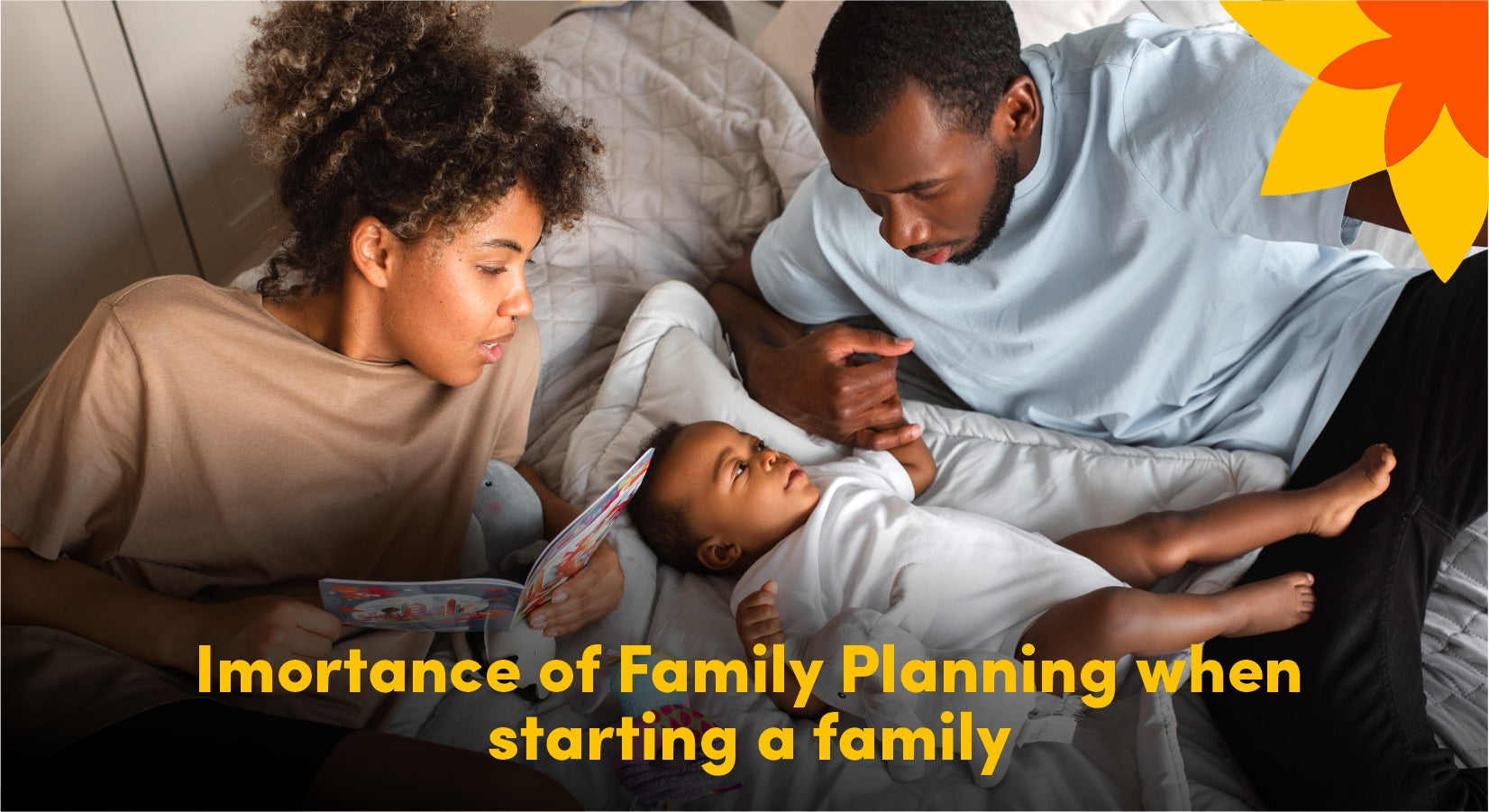Family planning is often overlooked but is a critical component of reproductive health programs worldwide. It encompasses the conscious decision-making process regarding when to start a family, how many children to have, and the spacing between them. Children naturally need to be close to their parents or a consistent caregiver. This connection is usually achieved when a child is loved, cared for, and protected by one or more adults in a family unit. It is the most basic ingredient for raising a happy, healthy, and confident child. (Zaman, 2019)
Family planning is important because children are such an integral part of our society and develop best under the infrastructural umbrella of a family unit. The number of children is often one of the first conversations couples hold during their courtship phase, determining the compatibility of two individuals who aim to merge into a union to create and sustain a family with offspring.
Family planning is important because agreeing on how many children a couple would like to have helps the couple efficiently bring up children in a family unit where the children are equally and sufficiently loved without putting a strain on the parents or resources available. The number of children is often one of the conversations couples hold during courtship.
Ensuring Reproductive Autonomy and Health
Family planning can catalyze asserting reproductive autonomy and safeguarding health outcomes for young couples. By providing access to a range of contraceptive methods and reproductive health services, individuals can exercise precise control over their fertility and mitigate risks associated with unintended pregnancies. Optimal birth spacing facilitated through family planning interventions contributes to maternal and child health, reducing the incidence of adverse outcomes such as maternal mortality, low birth weight, and infant mortality.
According to a recent study, men play a vital role in the uptake and continued use of contraceptive products and can influence the decision for when to discontinue contraceptive usage. As such, advocacy targeting the importance of family planning when Starting a family, men are central in promoting adherence and use of birth control. (Yolandie Kriel, 2009) By promoting antenatal care and postnatal counseling, family planning initiatives enhance the overall reproductive health status of young couples, laying a foundation for healthy pregnancies and childbearing experiences.
Mitigating Socio-economic Challenges
Through deliberate family planning decisions, couples can strategically manage their resources and investments, thereby improving their economic prospects and household stability.
By delaying childbearing and engaging in child spacing, young couples can pursue educational and career opportunities, enhancing their human capital and economic productivity and providing their offspring with better prospects. In addition, smaller family sizes resulting from effective family planning contribute to poverty reduction and sustainable development by alleviating pressure on limited resources and public services. For new families, family planning is still a potent tool for empowering married couples economically and fostering socio-economic progress at both individual and societal levels.
Fostering Stronger Relationships
Effective communication and shared decision-making are essential components of successful relationships, especially when it comes to family planning. For young couples embarking on the journey to start a family, discussing, and planning their reproductive goals can strengthen their bond and deepen their understanding of each other’s desires and aspirations. Mutual respect’s perspectives foster a supportive environment where both partners feel heard and valued. Additionally, engaging in family planning discussions encourages couples to confront potential challenges and develop strategies to overcome them together, thus laying the foundation for a resilient and enduring relationship. Additionally, a manageable family size ensures that both parents can give adequate time and attention to each child and each other. These smaller family units create opportunities for deeper connections and more thoughtful conversations between family members, therefore catering to the individual needs of children to be met accordingly and timely. (WEI, 2021)
Shaping Demographic Trajectories
Family planning interventions play a pivotal role in shaping demographic dynamics, particularly among young couples. By influencing fertility rates and population growth, family planning initiatives exert far-reaching effects on demographic trends, including age structure, dependency ratios, and population momentum. For young couples, access to family planning services enables them to make deliberate choices regarding family size and composition, this may influence future population projections and demographic transitions. In addition to this, by aligning fertility preferences with societal and environmental considerations, family planning contributes to sustainable population policies and resource management strategies, ensuring a harmonious balance between human needs and ecological constraints.
Family planning is a cornerstone of reproductive health, offering a pathway to individual fulfillment, stronger relationships, and societal advancement. Recognizing the significance of family planning and ensuring universal access to comprehensive reproductive health services are essential steps toward building a healthier, more prosperous future for generations. By addressing the aspirations of couples who aim to start a family, family planning interventions contribute to a range of positive outcomes, including enhanced health outcomes, poverty reduction, and deeper bonds between husband and wife. Embracing a holistic approach that integrates reproductive health services with broader socio-economic and demographic objectives is essential for maximizing the impact of family planning interventions and fostering a brighter future for young couples and subsequent generations.
The Epharma4FP project led by the Society for Family Health is focused on optimizing family planning service provision through e-pharmacy systems.
To speak with a licensed healthcare representative, click here
To shop for contraceptive options online, click here
Call us at - 09088196578

